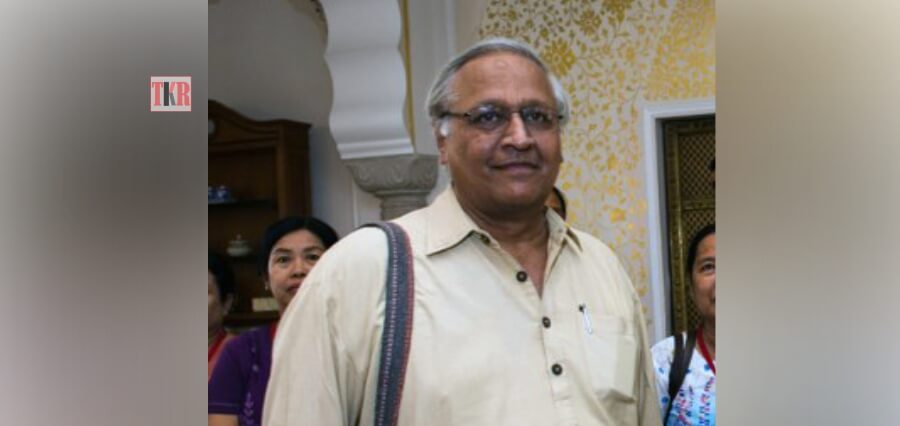We all have come across a profound saying by Leonardo Da Vinci that “Simplicity is the ultimate form of sophistication”. Having aptly inculcated this approach in his life, Bunker Roy has been one striking instance of this ideology. Roy is an Indian social activist and educator, whose simplicity and excellence can be witnessed through his Social Work and Research Centre, widely known as the Barefoot College.
How it all Started?
Roy went to the most expensive, snobbish and elitist school (Doon School) and College (St Stephens) in India. While he was still the Indian National Squash Champion in 1965 he responded to a call by Jayprakash Narayan and helped in the Bihar Famine. It changed his life. In 1967, he decided to work as an unskilled daily labourer for 5 years digging 100ft deep open wells through hard rock in the deserts of Rajasthan for drinking water. In this period, he experienced the incredible wonders of traditional indigenous knowledge, simple practical skills, and village wisdom that Mahatma Gandhi talked about that had stood the test of time. They had never been brought into mainstream thinking to be identified, respected and applied on a global scale with a view to improving the quality of life of the rural poor. Following the simple revolutionary practical ideas of Gandhi in 1971 (48 years ago), Roy constructed the Barefoot College at $ 1.50/sq.ft using illiterate rural barefoot architects. They received the Aga Khan Award for Architecture but it was returned because professional paper qualified architects objected. It is one of the very few places left in India where Gandhian values of simple living and collective decisions making are still alive.
He challenged the system by putting Gandhian thought into practice on to a global platform to remind the world he is still relevant. You can see and hear the calming non violent message of Gandhi through the life style and work style of the Barefoot College.
An Inspiration turned into Institution
Roy never considered education as an Industry. His inspiration was an idea to start a unique College only for the rural poor where more emphasis and focus would be given to the upliftment of rural women who were illiterate. Alvin Toffler said “ The illiterate of the 21st Century will not be those who cannot read and write but those who cannot learn, unlearn and relearn.”
When asked about his role model, he mentioned the names of His Holiness the Dalai Lama and Roy’s wife Aruna. He has learnt compassion, patience, tolerance, humility and an openness to unlearn. He has learnt more from the poor than from the rich and wealthy and famous, as he believes that other than money given ungracefully they have really nothing to offer.
Illiteracy is not a Barrier Anymore
Barefoot College is the only College in the world which does not consider “Illiteracy” as a barrier to any person wanting to be among other skills such as a solar engineer, an architect, a health worker, a designer, a communicator or even a barefoot dentist!.The strange thing about this College is that it’s the only College where should anyone apply with a Ph.D or a Master, they are disqualified to come.
Roy is of strong belief that fundamental mindset change in poor village communities is only possible if we empower illiterate rural women with sophisticated technology skills usually identified with men. They will be the change agents and role models of tomorrow and inspire rural youth especially girls.
Since the early 2000, the College has been training illiterate rural women (mostly between ages 35 to 50) in 6 months through the use of sign language to be competent and confident solar engineers. These illiterate women know more about fabrication, installation, repair and maintenance of fixed solar units and solar lanterns than any graduate after 5 years of University education. Now, the Barefoot College operates in 1,300 villages in 96 countries worldwide. The impact of direct training and services ripples out to impact about two million people, giving communities access to clean water and safe, reliable energy.
In 2018 the NGO Advisor, a Geneva based independent media organisation committed to highlighting innovation, impact and governance in the non profit sector, judged Barefoot College as the 13th best NGO out of 500 in the world.
Gandhian Lifetsyle
Roy believes in setting an example for others. He still follows a simple gandhian life style after 48 years of starting the College. He still sits on the floor in his office and takes the minimum wage prescribed by the State Government i.e. Rs 12,000/month. He doesn’t believe in using social media like twitter, blogs and Facebook to spread the message, as he uses none. He believes that the bush telegraph or word of mouth is equally strong as social media. Perhaps it is his simplicity that has attracted many other people today. His talk at TED Global 2011 in Edinburgh has over 4.3 million hits and been translated into 45 languages.
On 6th June 2017, Princeton University honoured Bunker Roy with an honorary degree of Doctor of Laws. He is the first and only Indian in the history of Doon School and St. Stephens College, Delhi University to have received this honor. The last Indian to have been so recognized was Nani Palkiwala, then Indian Ambassador to the US in 1978.
Promising Future
Roy asserts that the Barefoot College is a community based organisation. What he sees ahead of him are serious challenges outside the four walls of the schools where millions of people are facing hunger and starvation and it is the duty of every citizen who are fortunate enough to have food to eat to think how best they can contribute.
Roy is striving through the Barefoot College to address these basic problems so that within 500 kms around them there are Hunger Free Villages.









